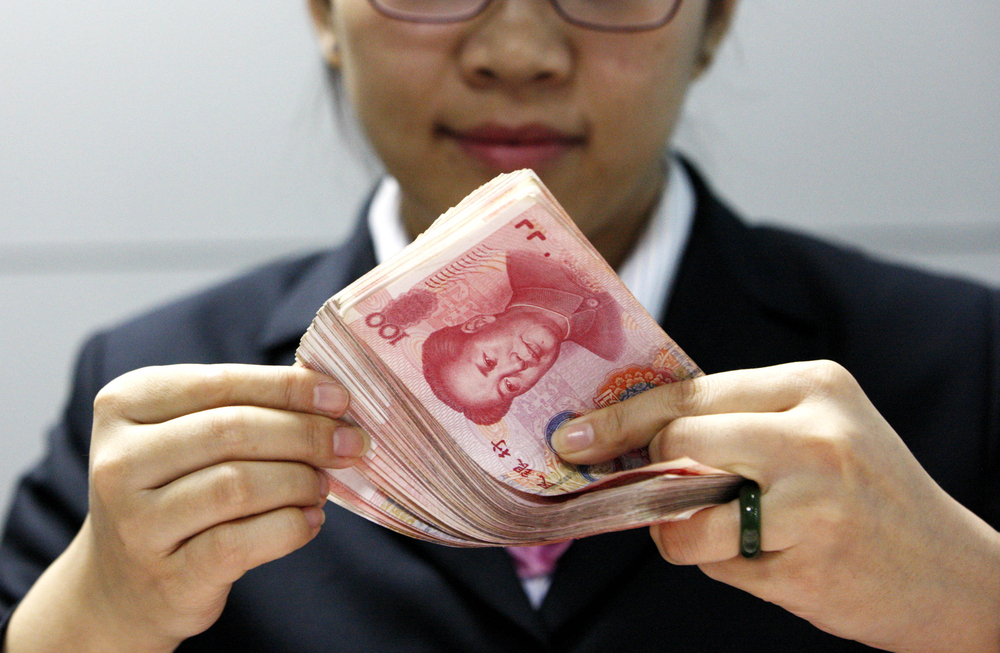Chinese President Xi Jinping: Blockchain Reshaping Global Economic Structure

China proposes major buying spree of U.S. goods to eliminate trade gap. | Source: Shutterstock
Xi Jinping, the President of China, arguably the most powerful politician in the world today, has said at the annual academic conference hosted by the Chinese Academy of Sciences that blockchain technology, artificial intelligence (AI), and Internet of Things (IoT) are reshaping the global economic structure.
“Ever since the start of the 21st century, a new generation of industrial revolution is substantially reshaping the global economic structure … with artificial intelligence, internet of things and blockchain constantly making application breakthroughs,” said President Xi.
Didn’t China Ban Cryptocurrency Trading?
In September 2017, the Chinese government and local financial authorities led by the People’s Bank of China (PBoC) officially banned cryptocurrency trading, shutting down local cryptocurrency exchanges and ordering commercial banks to prevent transactions to cryptocurrency brokerages.
However, even after prohibiting cryptocurrency trading, the Chinese government and local conglomerates such as Alibaba and Tencent have continued to focus on developing the blockchain and decentralised platforms that have the potential to improve the economy and the global financial structure.
On May 26, CCN.com reported that the State Council of China ordered local financial authorities and government-funded research centres to allocate more resources in developing, deploying, and commercialising the blockchain.
“To build a regional equity market in Guangdong, according to the opening up of the capital market, timely introduction of Hong Kong, Macao and international investment institutions to participate in transactions. We will vigorously develop financial technology and accelerate the research and application of blockchain and big data technologies under the premise of legal compliance,” the State Council of China said, maintaining a pro-blockchain attitude.
The statement of the State Council of China was released merely a month after Hangzhou city government decided to spend $1.6 billion on funding blockchain startups.
Most recently, ZhongAn, an insurance giant in China founded by Alibaba and Tencent founders Jack Ma and Pony Ma Huateng, partnered with more than 100 hospitals to utilise the blockchain in processing healthcare records, financial information, and payments.
Local analysts have stated that the ban on cryptocurrency trading does not reflect the government’s stance on the blockchain as an innovative technology. The Chinese government prohibited cryptocurrency trading because it led to local investors and businesses moving the Chinese yuan out of the country to other leading economies.
China has continued to impose strict capital controls since early 2000, and the ban on cryptocurrency trading was a part of the country’s capital control policies.
The Chinese government and the country’s President Xi still remain optimistic in regard to the long-term adoption of the blockchain, as seen in the government’s blockchain initiatives and large allocation of funds into the blockchain sector.
Chinese blockchain projects such as Qtum and VeChain have demonstrated massive success over the past year in the global market as well, with support from local authorities and the government.
China’s Own Blockchain
China has a strong history of replacing dominant platforms and companies such as Google, Facebook, and YouTube with local platforms to boost its economy. WeChat, Youku, and other domestic products replaced Western platforms.
The Chinese government is wanting to remain at the forefront of blockchain development, with local blockchain projects and networks leading the global market.
Images from Shutterstock
